#setting
Text
I am once again reading something set in a city that I have lived in written by someone who clearly has not done much/any research about that city.
I recommend doing the bare minimum of going on Google Maps and seeing if places are within easy walking distance of each other before you have people walking from one place to another.
Other things you might want to research are:
How do people generally travel?
What types of public transportation exist/what are they referred to as (e.g., subway vs metro)?
How can someone literally get from Point A to Point B?
If you're writing about a metropolitan area, who lives in the city versus the suburbs/exurbs?
Who lives in what parts of the city/town/area?
Is your character likely to rent versus own?
Are they likely to be able to afford to live alone?
What attractions are tourist attractions versus places where locals go?
What third places might exist?
992 notes
·
View notes
Text
Characters reconnecting with their ancestral cultures in an interplanetary setting
@pixiedustandpetrichor asked:
Hi! I am writing a novel with three main female characters in an interplanetary setting. They grow up as orphans in an Irish-coded country and as children are mostly exposed to solely that culture, but they leave after becoming adults.
Character A is Tuareg-coded, B Mongolian-coded, and C is Germanic-coded. It isn’t central to the story, but I would like them to get in touch with/learn more about their ancestral cultures, especially in terms of religion. A does this by actually visiting the planet her parents came from, but B and C do not.
What can I do to depict their relationships with said cultures and their journey to reconnect with them? Would it be realistic for each of them to have different mixed feelings about participating in these cultures and for them to retain some sense of belonging to the culture they grew up in as well? Thank you for your time.
Hello, asker! WWC doesn’t have Tuareg or Mongol mods at the moment, so we're not able to speak to the specifics of cultural and religious reconnection for these particular groups. Still, I want to take this opportunity to provide some general context and elements to consider when writing Tuareg-coded characters, or other characters from groups that have experienced colonization in the real world. My fellow mods will then share thoughts about cultural reconnection in general and with respect to Germanic heritage in particular.
Drawing inspiration from groups that have experienced colonization
As you’re probably aware, the Tuareg are an ethnic group indigenous to North Africa. As with many indigenous groups, they have experienced colonization multiple times over the course of their history. Colonization often leads to the loss or erasure of certain aspects of culture as the colonized people are pressured to conform to the culture of the dominant group. In many cases, it’s near impossible to say what the ancestral culture of a colonized group was prior to colonization.
When coding a fictional culture based on a group that was colonized in the real world, it's important to ask questions about:
Which aspects of culture you're portraying
Where these aspects come from
Whether you're ready to tackle their implications for the world you're building
It’s not necessarily wrong to use elements of coding that draw from cultural aspects influenced by colonization. As I said, it can be very difficult, even impossible, to portray a “pure” culture as it would have been had colonization not occurred–because we simply can’t know what that alternate history would look like, and because so much has been lost or intentionally suppressed that the gaps in our knowledge are too wide to breach. But it’s important to be aware of where these cultural elements are coming from.
Where is your coding coming from and what are the implications?
For example, while the Tuareg today are majoritarily Muslim, this was not the case prior to the Arab conquest of North Africa. Some elements of Tuareg culture today, such as tea ceremonies, are derived from the influence of Arab and Muslim culture and likely did not exist prior to the 20th century. As you’re developing the culture of the Tuareg-coded group in your fictional setting, you have to decide whether to include these elements. There is no right answer–it will depend on what you’re trying to do and why.
Is your setting in our far future, in which case we can assume your Tuareg-coded group is distantly related to today’s Tuareg?
In that case, they will probably have kept many cultural aspects their ancestors acquired through their interactions with other cultures around them–including cultural groups that colonized them. They may–let’s build hopeful worlds!–have reclaimed aspects of their ancestral culture they’d been forced to abandon due to colonization. They may also have acquired new aspects of culture over time. This can be very fun to explore if you have the time and space to do so.
I would recommend speaking with Tuareg people to get a better grasp of how they see their culture evolving over the next however many centuries or millennia, what they wish to see and what seems realistic to them.
Alternatively, maybe your setting is a secondary world unrelated to ours and you only want to draw inspiration from the real-world Tuareg, not represent them exactly. In that case, you need to decide which period of history you’re drawing from, as Tuareg culture is different today from what it was 50 years ago, and different still from 200 years ago or 1000 years ago. You’ll need to research the historical period you’re choosing in order to figure out what was happening at that time and what the cultural influences were. If it’s pre-colonial, you’ll probably want to avoid including cultural elements influenced by colonization from groups that arrived later on.
Finally, if the time period you’re drawing from is post-colonial:
Are you planning to account for the effects of colonization on Tuareg culture?
Will you have an in-world equivalent for the colonization that occurred in real life?
For example, will the Tuareg-coded characters in your world be from a nomadic culture that was forced to become sedentary over the years and lost much of their traditions due to colonial pressure to conform?
Where did this pressure come from in your world–is it different from what happened in ours? If so, how different? And what are the consequences?
Writing about colonization can be quite the baggage to bring into a fictional setting. I’m not saying it can’t be done, but it will certainly require sensitivity and care in portraying it.
In summary: think it through
I’m not saying all this to discourage you, but to point out some of the considerations at play when drawing inspiration from a real-life culture that has experienced colonization. Similar challenges arise for coding based on any other indigenous group in the world.
My advice to you, then, is to first sit down and decide where and when in history your coding is coming from, and what you’re trying to achieve with it. This will help you figure out:
which elements of contemporary Tuareg culture are pertinent to include
How much your coding will be influenced by the Tuareg’s real-life history
To what extent that will inform the rest of the world you’re creating
This, in turn, may help in deciding how to portray your character’s reconnection journey.
Again, I am not Tuareg and this is by no means meant to be an exhaustive list of considerations for writing Tuareg-coded characters, only a few places to start.
If any Tuareg or Amazigh readers would like to chime in with suggestions of their own, please do. As always, please make sure your comments adhere to the WWC code of conduct.
- Niki
Pulling from diaspora and TRA narratives of cultural reconnection
Marika here: This ask plotline could also pull directly from diaspora and TRA narratives of cultural reconnection. Many diaspora and TRA cultural reconnection stories are, in effect, about navigating the difficult process of resuscitating, or renewing ties to culture using limited resources in environments that often lack necessary cultural infrastructure or scaffolding.
See this question here to the Japanese team for suggestions of how to handle such a storyline in a similar sci-fi setting.
More reading: Japanese-coded girl from future
-Marika
Reconnecting with German heritage
Hi, it’s Shira. I’m not sure whether German-Jewish counts as Germanic for the purposes of your post but since German Jews were more assimilated than other Ashkies, Germanness does feel real and relevant to my life (especially because my father worked there for approximately the last decade of his life.) NOTE: when I see “Germanic” vs German I think of cultures from 1500 years ago, not 100-200 years ago, so I can’t help you there, but I’d be surprised as a reader if a character focused on that for reconnection to the exclusion of the 19th century etc.
People in the United States specifically, reconnecting with German heritage, often lean into Bayerischer/Bavarian kitsch, I’ve noticed. Personally, though, what I find most relevant is:
1. The food (although I’ve come to learn that what I grew up eating was closer to veal/chicken scallopini than actual schnitzel because it was drenched in lemon, but I do like the other foods like the potato salad and sweet and sour red cabbage etc.) Your character could try making one of these “ancestral” foods as a way to reconnect?
2. The classical music, because I’m a second generation professional musician – if character C plays an instrument, leaning into that might be meaningful (Beethoven, Bach, Brahms, Mendelssohn, Clara Schumann and her husband Robert, etc.)
3. The nature, especially specifics that I enjoyed during my time there – personally, I loved the bright pink flowers all over the chestnut trees, but there are a lot of choices especially because of the Alps. If C is an artist maybe they can sketch something Germany-related from old photographs they found on the Space Internet?
I think it is VERY realistic for the characters to remain connected to the culture in which they were raised, by the way, whether or not they have positive feelings about it. Culture isn’t an inherited trait. Sure, if they want to completely walk away, they can, but I bet there are still ways it will creep back in without them realizing it simply because it’s really hard to have universal knowledge of the origins of all our quirks. Plus, not everyone feels alienated from their raised-culture just because they’re genetically something else.
P.S. There is also Oktoberfest, which I don’t really get into but is a thing, and beer, which is another point of German cultural pride.
German gentiles, weigh in – y’all have your own stuff, I know! OH YEAH so for German Christians, Christmas “markets” are a whole thing. That’s worth looking up.
–S
What do you mean by Germanic?
Hello it’s Sci! I had to study German history for my historical fantasy novel set in the late 18th century Holy Roman Empire. I am not sure what is meant by Germanic as that can encompass a variety of things.
Germanic people: from the Classical Period of Roman Empire and early Middle Ages. Similar to Mod Shira, I unfortunately can’t help very much here.
The Germanosphere: regions that spoke German, which includes modern day Germany, Austria/Hungary, Switzerland, Lichtenstein, Belgium, and Luxembourg. I generally define this as the regions captured in the Hapsburg Empire along with Switzerland usually encompassing “Central Europe.”
Modern German national identity (i.e. German): post Napoleon and the Congress of Vienna (> 1815) only including the territory of modern day Germany.*
I ask this because modern German national identity is surprisingly recent since Germany only popped up in 1871 under Otto von Bismarck. Previously, Germany was divided into smaller states and city states as a very decentralized region under the German Confederation and before that, the Holy Roman Empire. Depending on the era, you can see different conflicts and divides. During the early days of the Protestant Reformation started by Martin Luther, the northern and southern German territories generally split along Protestant-Catholic lines. The 18th century saw Austria and Prussia as the foci of global power who warred against each other even though both were part of the Holy Roman Empire.
Other states and city-states like Baden-Wurttemberg or Saxony sometimes had power but it was typically more localized compared to Austria. Post-WW2, you saw the split of Germany into West Germany run under capitalism and East Germany run under communism as a satellite Soviet state leading to more modern cultural divides. Due to heavy decentralization historically, each region had its own character with religious and cultural divides.
Assuming that the Germanic character is not from the classical period or early Middle Ages but not from the 19th century either, you can include your character reconnecting to classical folklore like that of Krampus (if they’re Christian), German literature and music like the works of Johann Wolfgang von Goethe or Mozart, or German philosophy like Immanuel Kant.
*A major wrinkle: German royals and nobility married into other states and nations frequently with Britain and Russia being notable examples. In Britain, the House of Hanover took over after the Stuart House died without clear direct heirs. When Queen Victoria married the German prince Albert, they celebrated Christmas with a tree and brought the German tradition of a Christmas tree to Britain and the British Empire. Only during World War I did the royal family’s house of Hanover name change from House of Saxe-Coburg and Gotha to the more “English-sounding” Windsor. As a result, the German cultural influence may be even more widespread than we think.
However, without more specific descriptors of what Germanic means in the context of your story, it can be difficult to determine which aspects of German culture your character could reconnect to.
-Mod Sci
#culture#cultural disconnect#cultural reconnect#race coding#ethnic coding#German#Mongol#Tuareg#setting#science fiction#Jewish#Colonialism#History#North Africa#Arab#Muslim#history
337 notes
·
View notes
Text
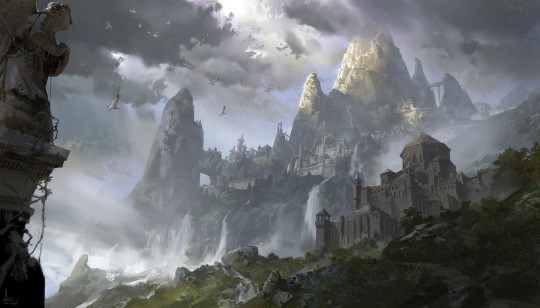
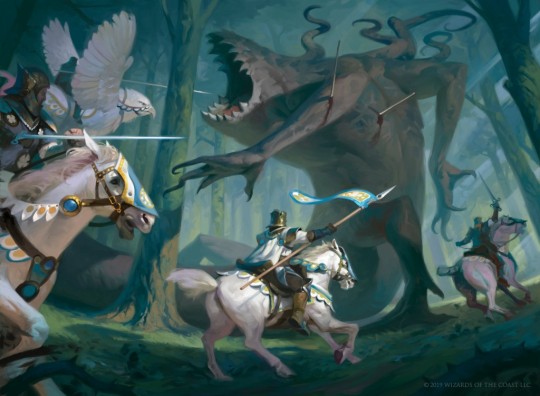
Setting: The Kingdom of Xophena, Realm of the Pure
Though it is famed the world over for the piety of its people and the bravery of its knights, this kingdom holds a dark secret at its heart. If you were to see the scattering of fortress cities surrounded by horror haunted wilderness it would be all too easy to believe the legends: brave warriors sallying forth to do battle against the corruption that besieges them from all sides, slaying great foes and making great sacrifices in the name of defending the innocent. If you looked closer though you would see Xophena for all its faults, the fear by which its elite drive and dominate its populace, a tradition of martial glory that justifies any action or abuse of the warrior caste, a population forced to endure toil and abject subjugation or be exiled outside the walls.
Adventure Hooks:
While travelling through the realm of the pure as part of an ongoing quest, the party run into a retinue of outrider knights on their way to destroy a rampaging aberration hiding out in a gold mine. Some of the knights scoff at the party for being common sellswords, while others recognize them as fellow doogooders-at-arms. There's glory to be had if the party join them in their mission, and more importantly, potential reward and bragging rights.... if they can keep up, the mounted cavaliers aren't going to slow down on the party's behalf.
Xophen emissaries have made an appearance in the party's homeland, courting alliances, making trade deals, and generally putting their finger on the scales of power. Distrustful of too many good offers, the party's patron is planning on a visit to Xophena in the near future and would like them to come along as extra sets of eyes and ears. Renegade heroes have a habit of seeing through the haze of political bullshit.
Xophena would make a fascinating backdrop for a campaign, as Arthurian myth crashes into lovecraftian weirdness. The best place to start would be with the party as castoffs and exiles, eking out a living in one of the few hidden hamlets built by those outcast from the social order. How do they survive? When circumstances demand that they enter one of the fortress cities do they trick their way in, or beg favour from the sanctimonious powers that be? Can they last long enough to discover the secret that has bent the world into its current cruel shape?
Background: Only a few centuries ago Xophena was just like any other kingdom, periods of prosperity and stability that dissolved into infighting as the local warrior elite squabbled for position. That of course all changed when monsters known as the Delnbrood began to wriggle out of the earth like worms after rain, causing untold devastation and forcing a societal retreat to the increasingly fortified settlements dotted about the mountainous foothills. The fear and chaos of these years restructured Xophen society into a rigid hierarchy based around tradition, faith, and survival, which has only grown more ossified as time has gone on.
Both Xophen scripture and legend will tell you that the horrors that beset them began with a treasonous sorcerer Delndrek who sought to take the throne for himself through dishonorable means and darkest sorcery. He was opposed by Tanria brightspear, a saint of the everlight who foiled his every sly attempt to seize power, until at last she cornered him and forced his surrender. Ever the coward, Delndrek sacrificed his humanity rather than relinquish his ambition, becoming an indescribable abomination, that it took the bright speared saint five days to vanquish, dying in the process. It's said that the aberrations that beset Xophena today are born from where his tainted blood struck the earth.
Like many of the tales told about the realm of the pure, this story is a lie, gilded with just enough truth to make it stick in the people's memory. Delndrek wasn't just a sorcerer, but the sorcerer of the royal family, tasked with magicing away all the problems that backwoods dynasty couldn't solve through bloodshed or political marriage. The kingdom's goldmines had always been its lifeblood, and most of the fighting in those days about who could profit from what claim. Trouble was the royal family's mines were drying up, so they threw their pet mage at the problem said that if he didn't find a solution they'd torture him till they did. Dying mines and mounting stress forced Delndrek to look deeper and deeper for an answer, and eventually led him to communion with the outergod Jysh'parun who holds dominion over the secrets of mountains. A pact was struck, the mountains ate people and spat up gold, until eventually the saint found out and decided to put a stop to things.
Cut to today, and the dependants of that very same royal family are still trying to wriggle out of the pact they instigated, spending their people's lives to fill their coffers and fight back the creatures the outer god sends to assert dominion over the realm he was promised.
Setting Details:
The church of the everlight was always strong in Xophena, dating back half a millennia to when an adherent of hers was lost on a stormy sea for months and was only able to find land when the mist parted and he saw the dawn first alighting on one of the region's seaside peaks. The mountainous temple city of First Alight still serves as the heart of the region's faith.
That faith has become just as gaudy and hollow as the rest of the kingdom: Somewhere along the line it was decided that gold was the best way to demonstrate praise to Sarenrae, both in decorating her icons and paying to erect ever grander structures in her honour. While the common people pray for the hope and strength to lead them through lean times, their tithes go to fund an increasingly bloated clergy who spend their days finding reasons that the peoples' sinful nature forestalls their goddess's promised salvation.
You don't compose ballads calling your homeland "Realm of the Pure" unless you've got some hangups around cleanliness. Delndrek's corruption has touched more than the land, as aberrant sorceries and otherworldly mutations have begun to spring up among the populace. Those with influence do their best to hide these marks, those without are scapegoated, exiled, or made an example of.
For all their privilege and brainwashing, many of the realm's knights really do believe in the cause, having largely abandoned the ways of petty armed gentry and settling instead into martial orders. While they all compete to slay the most beasts and earn the most gallant reputation, it is a deepset longing among the knights to be able to find St. Tanria's lost spear, which in the right hands is said to be able to rid the land of its blight once and for all.
Arcane magic is viewed with suspicion in Xophena, as any rogue mage could be just another Delndrek waiting to happen. Exceptions are of course made for those spoken for by the nobility.
Art 1
Art 2
#Jysh'parun#setting#campaign#press start#mountain#lovecraft#occult#dnd#dungeons and dragons#d&d#ttprg#pathfinder#sarenrae
174 notes
·
View notes
Photo
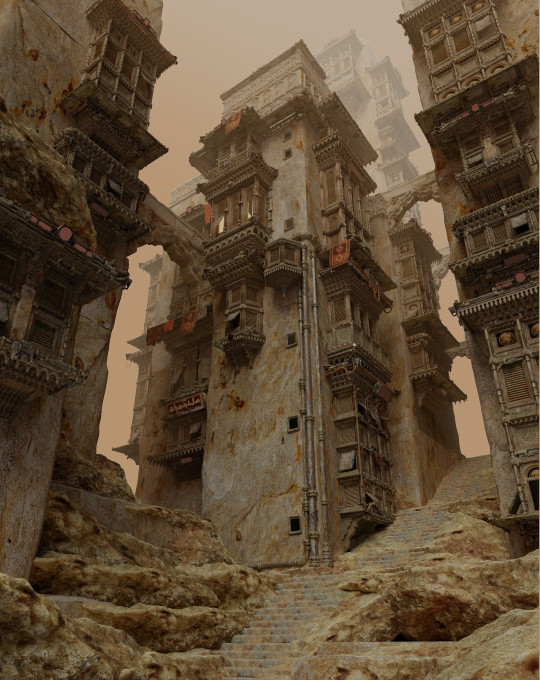
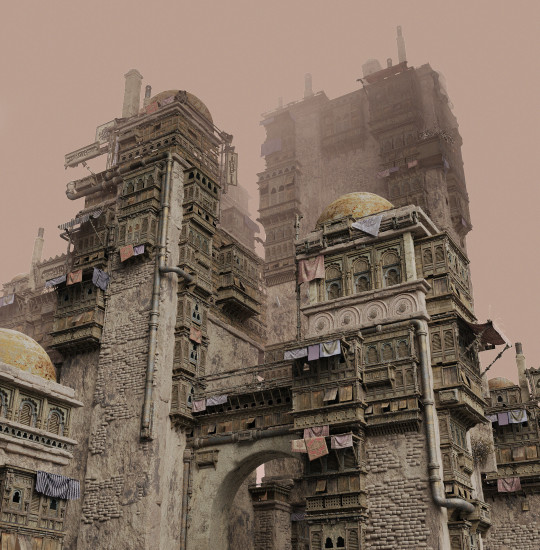


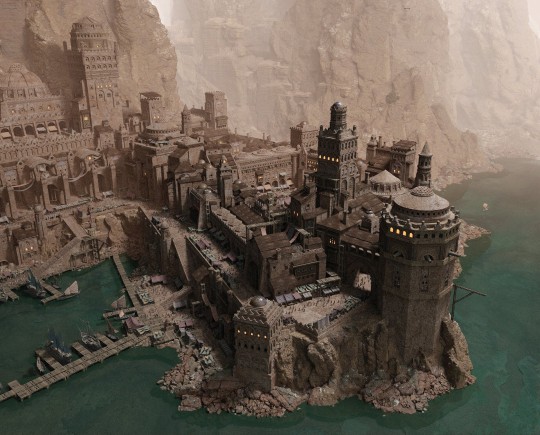
Velvet Road by Max Bedulenko
838 notes
·
View notes
Text
A dwarf tentatively raised his hand.
"'Scuse me?"
"Yes?" said Soll.
"Why is it all Mr. Dibbler's films are set against the background of a world gone mad?" said the dwarf.
Soll's eyes narrowed. "Because Mr. Dibbler," he growled, "is a very observant man."
Terry Pratchett, Moving Pictures
#soll dibbler#cmot dibbler#moving pictures#discworld#terry pratchett#film#setting#story#art imitates life#a world gone mad#very observant
429 notes
·
View notes
Text
prompt 2420
“Places are never just places in a piece of writing. If they are, the author has failed. Setting is not inert. It is activated by point of view.”
--Carmen Maria Machado, In the Dream House
#daily writing prompts#fiction#writing#writing prompts#writing practice#writing inspiration#creative writing#setting
69 notes
·
View notes
Text
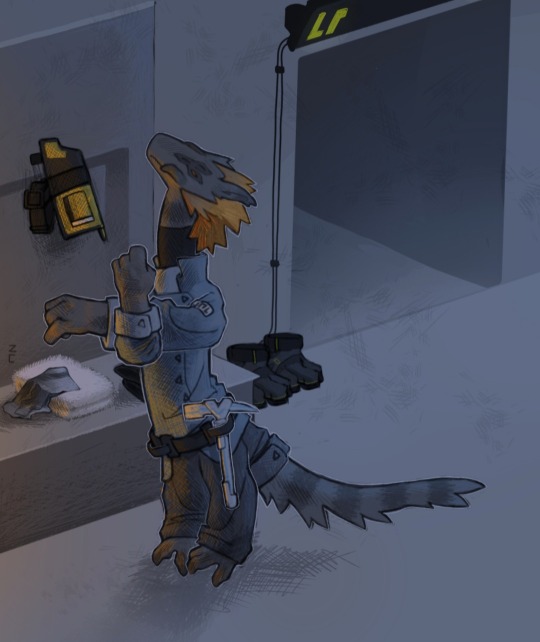
After a night shift
A drawing I made of my oc Yreu back when he worked in a mine :>
#myart#alien#alien species#original alien species#spec bio#spec evo#setting#illustration#speculative biology#speculative evolution#creature#creature design#sci fi#science fiction#worldbuilding#spore#spore game#tovoxrans
131 notes
·
View notes
Text
Eclipse Phase but the only morphs available are roombas.
Budget cuts, you know?
162 notes
·
View notes
Text
Basics Of Foreshadowing With Techniques
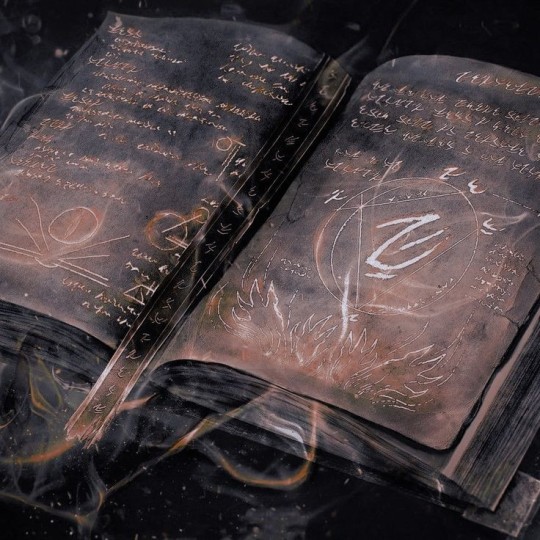
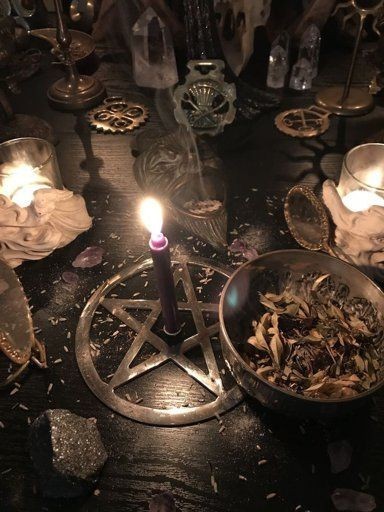
At its core, storytelling has one ambition: to capture and sustain your reader’s attention and keep them reading your story. Foreshadowing, or slyly indicating a future event, is one technique a writer can use to create and buillding suspense. Its useful for creating suspense, a feeling of unease, a sense of curiosity, or a mark that things may not be as they seem.
Foreshadowing does not necessarily mean explicitly revealing what will happen later in your story. In fact, when it is used effectively, many readers may not even realize the significance of an author’s foreshadowing until the end of the story.
There are 2 types of foreshadowing:
1. Direct foreshadowing (or overt foreshadowing): In this type of foreshadowing, the story openly suggests an impending problem, event, or twist. Direct foreshadowing is usually accomplished through the characters’ dialogue, the narrator’s comments, a prophecy, or even a prologue.
2. Indirect foreshadowing (or covert foreshadowing): In this type of foreshadowing, the story hints at an outcome by leaving subtle clues throughout the story. With indirect foreshadowing, readers likely won’t realize the meaning of the clues until they witness the foreshadowed event.
TECHNIQUES TO USE IT:
1. Dialogue: You can use your characters’ dialogue to foreshadow future events or big reveals. This foreshadowing may take the form of a joke, an offhand comment, or even something unsaid that adds personality to your characters while planting the seed for later revelations.
2. Title: The title of a novel or short story can be used to foreshadow major events in the story as well.
3. Setting: The choices you make about the setting or atmosphere of your story can foreshadow events as well.
4. Metaphor or simile: Figurative language like similes and metaphors can be effective foreshadowing tools
5. Character traits: A character’s appearance, attire, or mannerisms can foreshadow that character’s true essence or later actions.
Hope It helps! Follow, Like And Share!
I'll put out a post on how to use foreshadowing next so stay tuned! :)
#writing tips#writing advice#literary devices#foreshadowing#how to write#books#writers#readers of tumblr#daily life#bookaddict#writers on tumblr#dank memes#reader problems#book blog#booklover#writing dialogue#setting#basics of writing
2K notes
·
View notes
Text



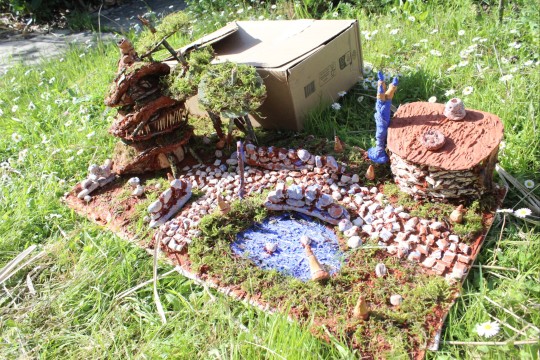
Not long ago I drew concepts for stop motion settings, and I made them ! 🐚🌲
49 notes
·
View notes
Photo

Metropolitan Area Outer Underground Discharge Channel in Japan
368 notes
·
View notes
Text

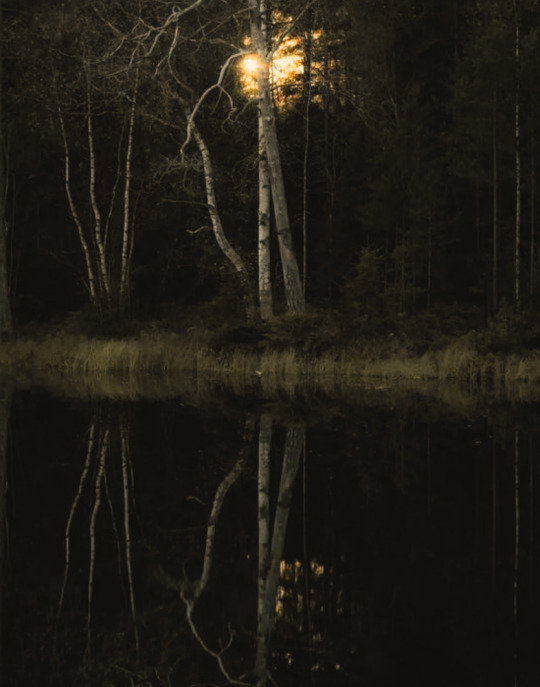
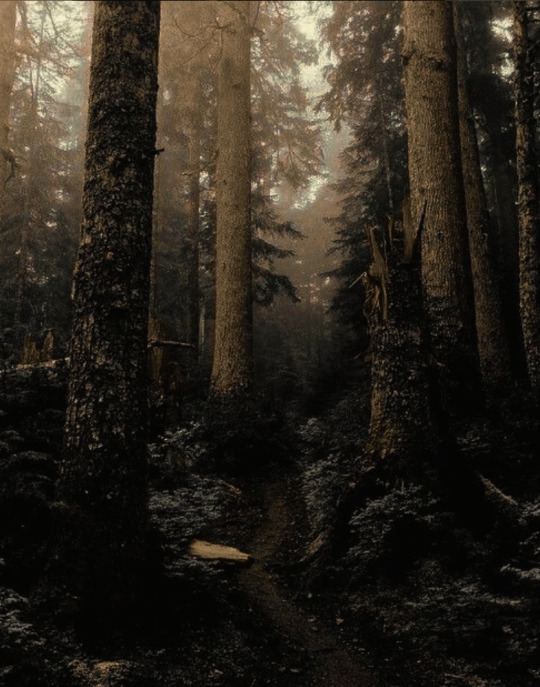

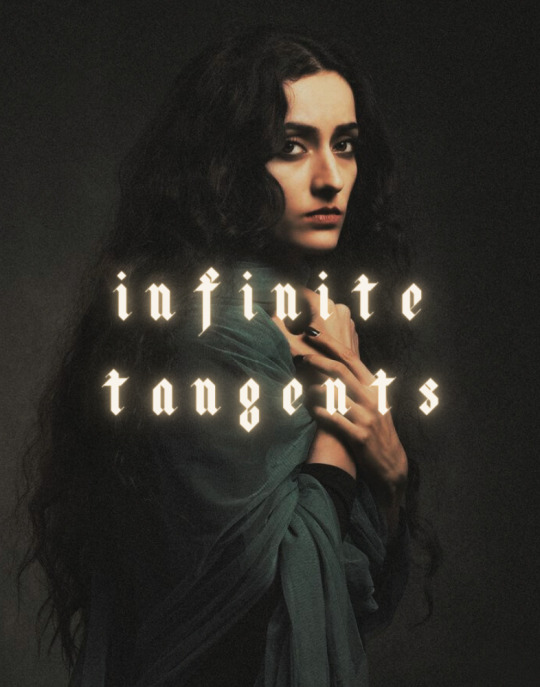

𝐈𝐍𝐅𝐈𝐍𝐈𝐓𝐄 𝐓𝐀𝐍𝐆𝐄𝐍𝐓𝐒
"𝑻𝒆𝒍𝒍 𝒕𝒉𝒆 𝒌𝒊𝒏𝒈; 𝒕𝒉𝒆 𝒇𝒂𝒊𝒓 𝒘𝒓𝒐𝒖𝒈𝒉𝒕 𝒉𝒐𝒖𝒔𝒆 𝒉𝒂𝒔 𝒇𝒂𝒍𝒍𝒆𝒏. 𝑵𝒐 𝒔𝒉𝒆𝒍𝒕𝒆𝒓 𝒉𝒂𝒔 𝑨𝒑𝒐𝒍𝒍𝒐, 𝒏𝒐𝒓 𝒔𝒂𝒄𝒓𝒆𝒅 𝒍𝒂𝒖𝒓𝒆𝒍 𝒍𝒆𝒂𝒗𝒆𝒔. 𝑻𝒉𝒆 𝒇𝒐𝒖𝒏𝒕𝒂𝒊𝒏𝒔 𝒂𝒓𝒆 𝒏𝒐𝒘 𝒔𝒊𝒍𝒆𝒏𝒕; 𝒕𝒉𝒆 𝒗𝒐𝒊𝒄𝒆 𝒊𝒔 𝒔𝒕𝒊𝒍𝒍𝒆𝒅. 𝑰𝒕 𝒊𝒔 𝒇𝒊𝒏𝒊𝒔𝒉𝒆𝒅."
— 𝐓𝐡𝐞 𝐥𝐚𝐬𝐭 𝐎𝐫𝐚𝐜𝐥𝐞 𝐨𝐟 𝐃𝐞𝐥𝐩𝐡𝐢
𝐀𝐁𝐎𝐔𝐓
GENRE: New Adult (16-25) / Contemporary Fantasy
SUB-GENRE: Romance / SciFi / Dystopian / Action
POV: Third Person (Multi) / Past Tense
THEMES/TROPES: War, Found Family, Heroism, Sacrifice, Power, Corruption, Enemies to Lovers, Bigotry, Forgotten Past, Faith, Dark VS. Light
STATUS: Seeking Publication
𝐒𝐘𝐍𝐎𝐏𝐒𝐈𝐒:
In the wake of a god being mysteriously killed, the Nameless War has waged between the gods and humanity for fifty-eight years, killing that which is mortal and immortal, and creating constant battles for territory between the divine Creator military and the human Revolutionists. As hope for future peace between the species wanes, the fate of the war lands in unlikely hands.
Pandora, a goddess, the lost creator, nameless and chained to the Earth because of duty, yet still running from her true power.
Quinn, a god, the skijic and Creator High General, desperate for the memories of a life lost and the familiarity of a purple-eyed goddess.
Natia, a girl, heiress to one of the Republic of Valentulus’s most powerful cities, and slave to the Revolutionist Snake General.
Loyalties whither, fear awakens, and stories collide as the Nameless War reaches its tipping point. It is up to Pandora, Quinn, and Natia, each of them sworn against one another, to challenge the boundaries of their duties—and their pasts. The only thing that might change their opposing fates is the truth, but letting the past fly free could very well set the darkness loose.
The fight between deities and humanity is made equal, and the fate of the universe unsure.
𝐂𝐇𝐀𝐑𝐀𝐂𝐓𝐄𝐑𝐒 - 𝐩𝐫𝐨𝐭𝐚𝐠𝐬
PANDORA: Goddess of Nothing, Governor of Domum Deorum, Creator of the Universe. Extremely skilled in both alchemic and physical combat; well versed in a number of chordophone instruments (piano, kaleiscian zarisk, violin); selfless and self sacrificing; compassionate, analytical, cultured, stubborn, witty.
QUINN: God of Stars, High General of the Creator Military. Omne’s personal “lap dog” before his capture; good with any blade, has "shit aim"; short with those he doesn’t know/care about; protective, sarcastic, composed, knowledgeable, caring, prideful.
NATIA GENESIS: Heiress of Genesis Point. Little Sparrow. Remarkably intelligent in regards to literature, strategy, and divine biology due to intense schooling; the Republic of Valentulus' most renowned deitologist; near non-existent family ties outside of the media; intelligent, kind, self-destructive, abrasive.
𝐂𝐇𝐀𝐑𝐀𝐂𝐓𝐄𝐑𝐒 - 𝐚𝐧𝐭𝐚𝐠𝐬
OPHELIA SERPENTINE – General of the Revolutionist Military Government. Although not a master of strategy like Natia, she is manipulative; willing to do any and everything to maintain her power; manipulative, emotionally intelligent, controlling, dedicated, knowledgeable, passionate.
OMNE - Goddess of the Universe (Mind), Queen of the Gods. Like Ophelia, she is extremely manipulative in order to achieve her means, though she keeps them hard to distinguish; analytical, facetious, secretive, manipulative, humorous, rude.
𝐒𝐄𝐓𝐓𝐈𝐍𝐆
REPUBLIC OF VALENTULUS – Otherwise known as the R.O.V.; had once been the newly created nation in place of the United States in order to maintain control over the worsening relations between gods and humans. Unfortunately, much of it was destroyed after the beginning of the war, spare for the wealthiest districts and cities.
DOMUM DEORUM - Heather’s city she built through the means of alchemy. Gods and humans live in unity here, under the leadership of Heather’s councils: Low Council (general citizens), High Council (divine and human district leaders), Master Alchemists (gods who have mastered the alchemic arts). For fifty-eight years Domum Deorum has existed in secret, though their efforts in the war remain influential.
GENESIS POINT - A city with close ties to the Revolutionist military government. Mainly profits from scientific innovations, particularly thanks to Natia's efforts as a deitologist, and diplomatic advisors. As such, they are a major producer of both technology and weaponry. The city has been led by the Genesis family since its creation, Lukyn Genesis the most recent, with Natia Genesis as the next in line to inherit one of the R.O.V.'s most powerful governments.
(order of protags in the images above: Natia Genesis, Quinn, Pandora.)
Note: this is definitely one of several times i've introduced this particular book, but i'm so, so, so happy to do so. infinite tangents is the first book of many in the natural orders series, and i'm so excited to share with you all how far this story has come since i came up with it in 2014 (which is insane to me). hopefully, this story will be published soon... if i can work up the courage to email literary agents.
#writeblr#writers of tumblr#writer#wip intro#wip introduction#writing introduction#writerblr#books#aspiring author#tno#the natural orders#fantasy novel#fantasy series#tno- infinite tangents#plot#setting#worldbuilding#ocs#original writing#original characters#romance#scifi#action
55 notes
·
View notes
Text
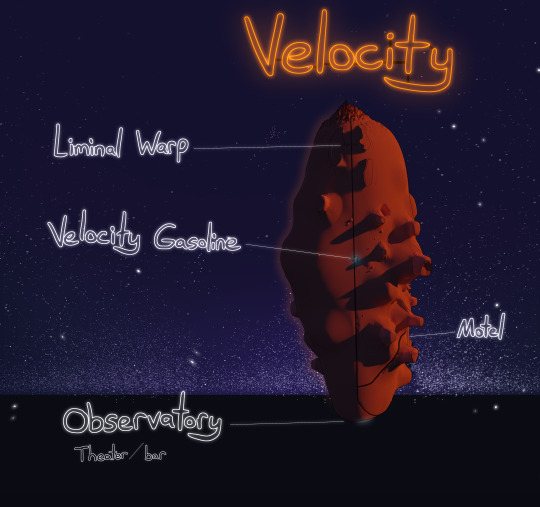
A planet named Velocity, keeping pace above an endlessly expanding void, offering escape.
#Velocity#worldbuilding#Liminal#liminal velocity#Liminal Warp#Velocity Gasoline#Observatory#setting#planet
71 notes
·
View notes
Text

It's A Feature.
And more from the world of design.
31 notes
·
View notes
Photo
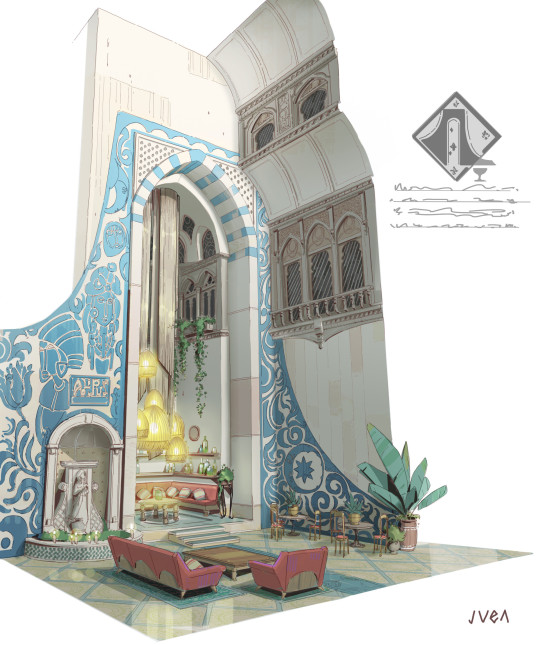
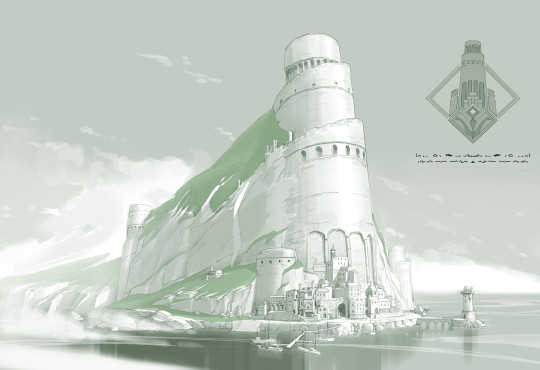



by J Ven
627 notes
·
View notes
Text


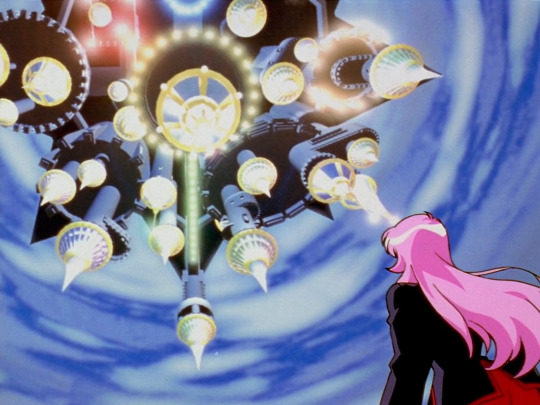
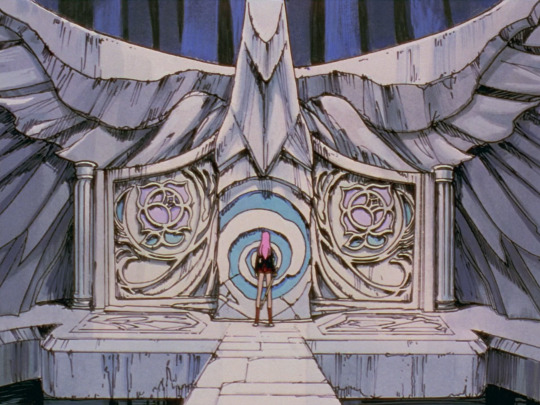

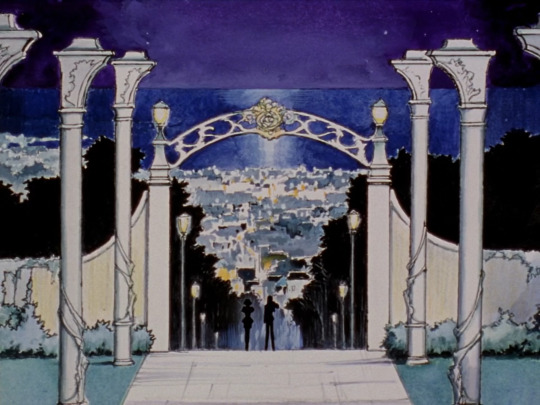
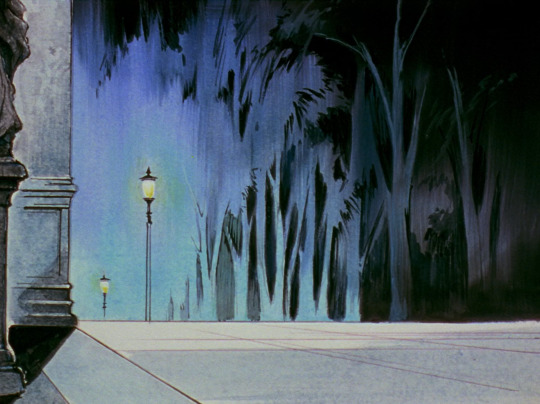
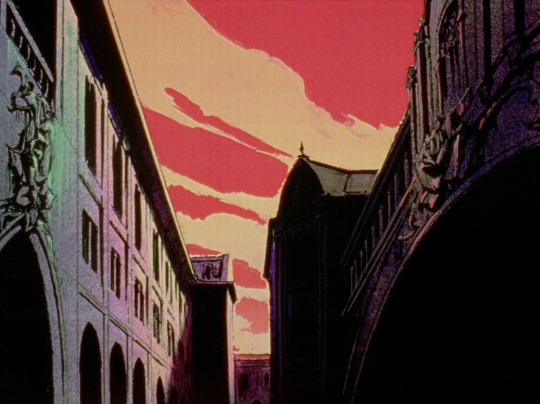
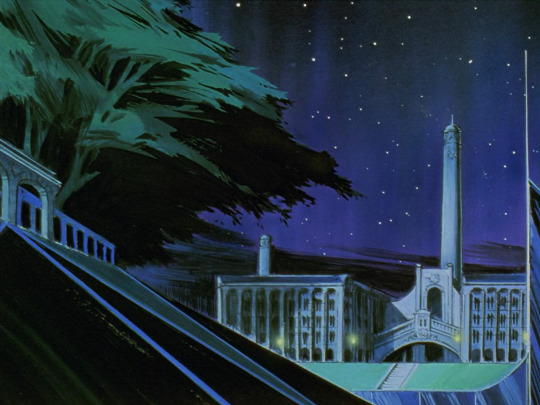
Revolutionary Girl Utena Episode 1: The Rose Bride
119 notes
·
View notes